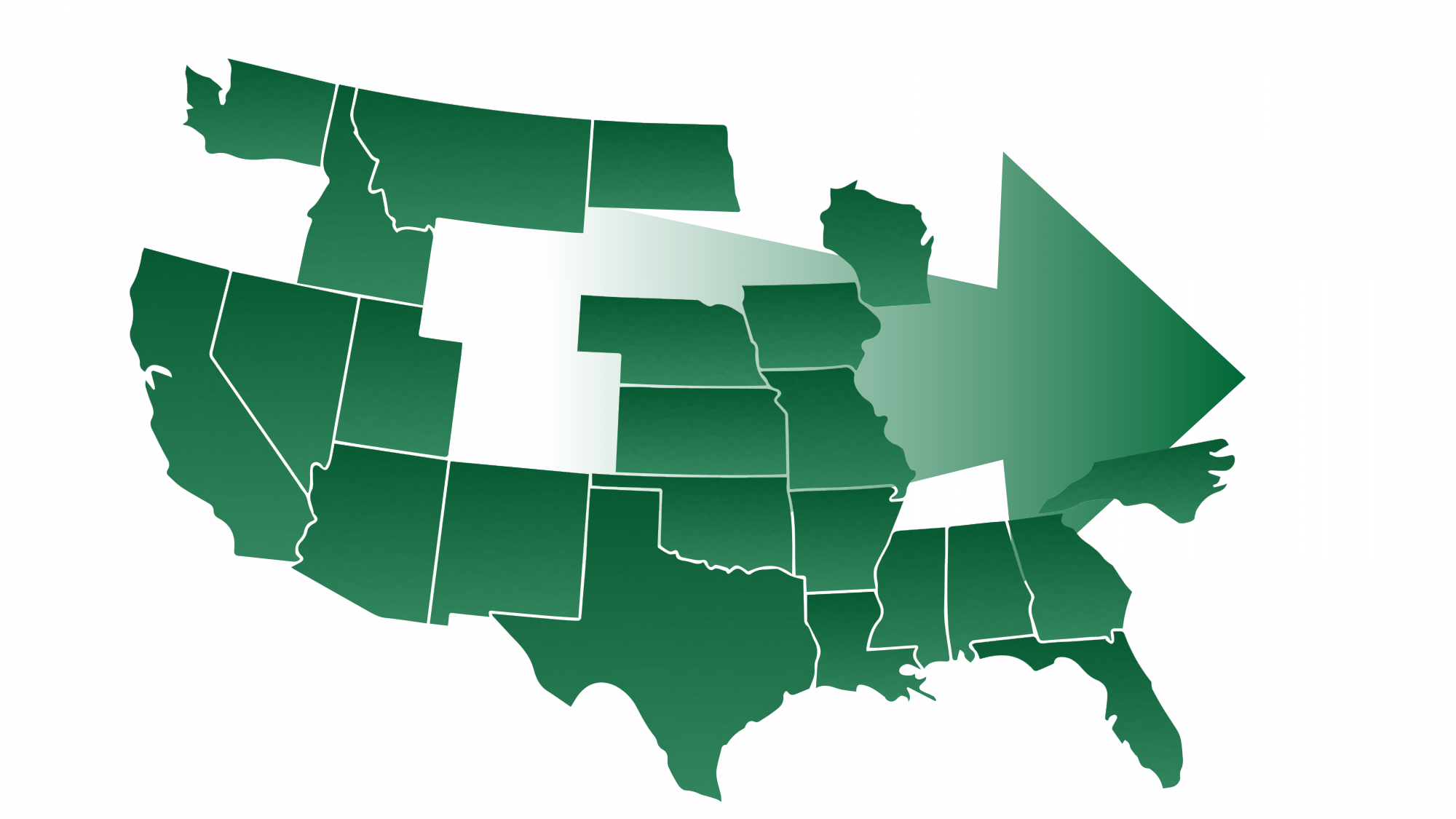Some students from coronavirus hot spots prioritize returning to DC
Some say they feel safer in the District
CARLY JOHNSON/THE EAGLE
By Dan Papscun | Aug. 13, 2020
AU students from states classified by the District as coronavirus hot spots are conflicted about returning to D.C., following AU’s announcement that University operations will be fully online, with virtually no on-campus housing.
Bennett Thompson, a rising freshman in the School of Public Affairs from Berkeley, California, was excited to finally move away from home to start their college experience. Now, they said, the prospect of not living in D.C. or experiencing the AU community is extremely discouraging.
“I’m very disappointed that I can’t live in D.C. and on campus,” Thompson said. “I wanted to experience moving out, being independent, and I obviously can’t do that as much at home. It’s how it has to be, and it’s probably better for health and safety.”
For some, the prospect of living in a city that is handling the pandemic better than their home states is attractive. For others, a fully online semester means that traveling to the District is no longer feasible.
AU’s change to a fully online semester was preceded by a July 27 directive from D.C. Mayor Muriel Bowser, which required all non-essential travelers from coronavirus hot spots, including students, to self-quarantine for 14 days upon arrival in the District.
Although Maryland and Virginia both fit the criteria to appear on the hot spot list, a seven-day moving average of daily new COVID-19 cases of 10 or more per 100,000 people, Bowser said they are currently exempt.
Over 28 percent of AU undergraduate students enrolled in fall 2019 are from states on the list, according to AU’s Academic Data Reference Book.
Lindsay Schawelson, a rising junior in the School of International Service and an Arizona native, said that she was looking forward to being in a part of the country where the number of COVID-19 cases have significantly decreased. Arizona’s daily number of new cases spiked in June and July, and are now over 2,500 per 100,000 population, according to data from the Arizona Department of Health Services.
“I’m excited to be going back to a city that I know has better leadership, even though I might not love staying in all the time, not being able to do what I could do in Arizona,” Schawelson said. “I’m afraid to go to the grocery store now, and I feel like D.C. is a lot safer.”
The DMV has seen a marked increase in total cases over the past month, with close to 2,000 new daily reported cases, according to The Washington Post. That’s up from about 1,000 throughout most of June.
While deaths are still significantly lower than in May, the number of reported cases in the DMV is quickly approaching the previous peak set in the spring.
Bowser issued a new mandate on July 22, requiring that people in the District wear masks whenever they leave their residences with the likelihood of coming into contact with another person. The rule applies to common areas within residences as well, and states that those found to be in violation are subject to fines of up to $1,000 per violation.
James Lovett, a rising sophomore in SIS from South Carolina, agreed with Schawelson. He returned to the District recently, where he’s quarantining in an off-campus apartment before the semester begins online.
According to data from South Carolina’s Department of Health and Environmental Control, the pandemic there worsened throughout July, totalling more than 1,900 cases per 100,000 population. Lovett said that despite the numbers, he feels as if people aren’t taking the virus seriously enough, with many summer activities continuing as usual.
D.C. is experiencing slightly fewer new daily reported cases per 100,000 population as South Carolina. Around 82 new cases have been reported per day in the District in total, according to data from The Post.
As a food runner at a local restaurant, the lack of precautions from the general public were on full display to Lovett. While the restaurant’s staff made a variety of efforts to maintain social distancing and cleanliness standards, Lovett said, the reception to those efforts was dismal.
Lovett said he’s fine with quarantining in the District.
“I don’t want to be the cause for getting 30 people infected. It’s not ideal, but it’s what you have to do,” Lovett said. “You gotta care about your neighbors, your country and the world.”

